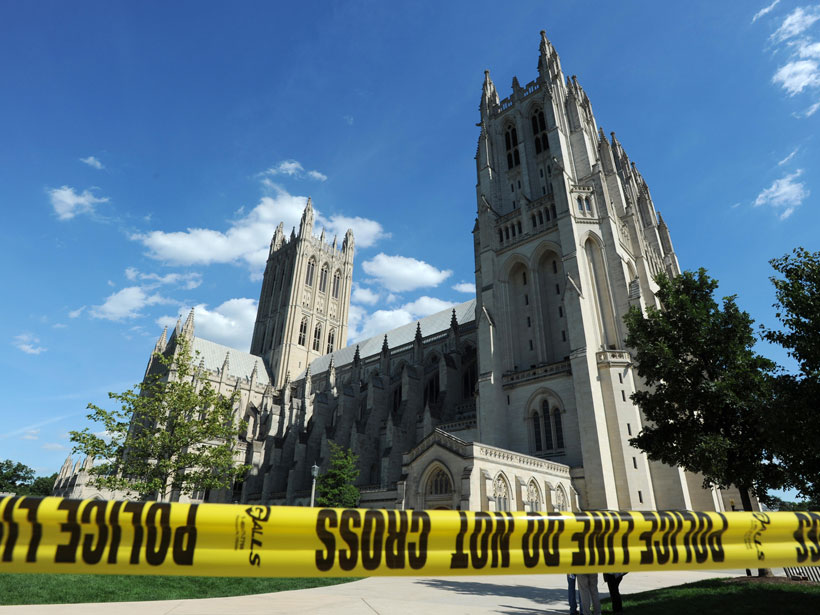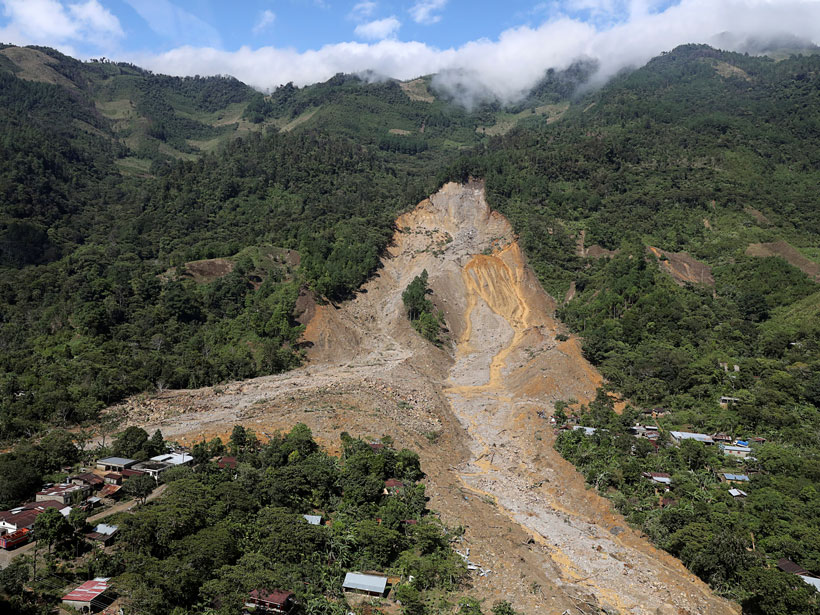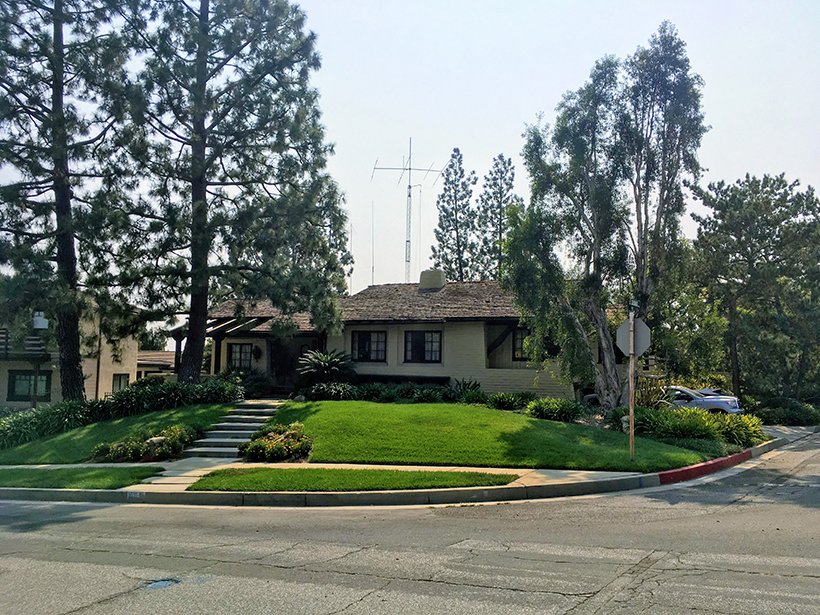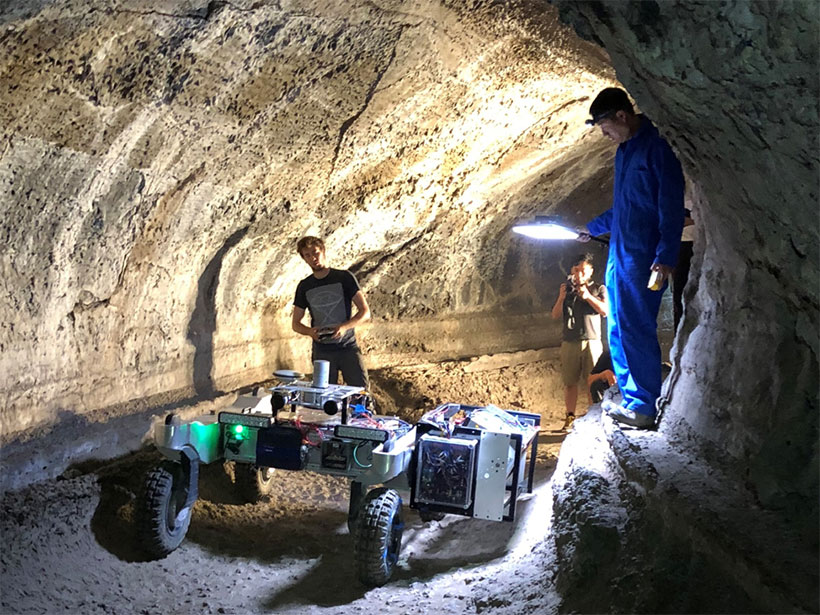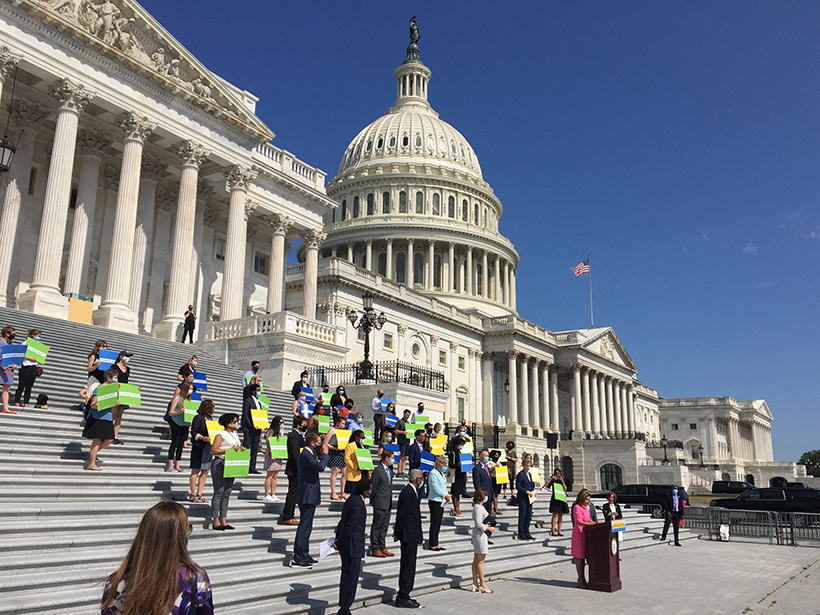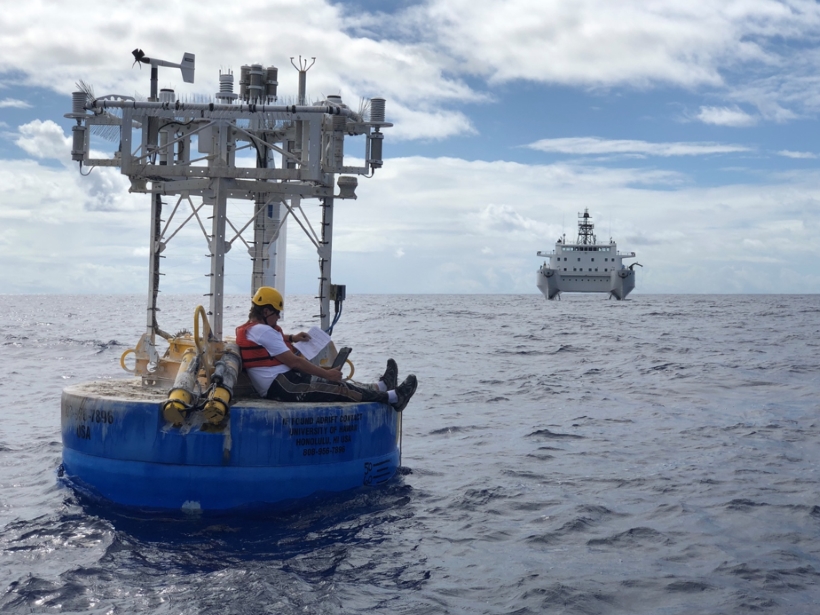Improving our understanding of hazards posed by future large earthquakes on the Cascadia Subduction Zone requires advancements in the methods and sampling used to date and characterize past events.
3-Public domain
Ten Years on from the Quake That Shook the Nation’s Capital
A decade of study into the Virginia earthquake that damaged D.C. and reverberated up and down the Atlantic coast in 2011 has shed light on rare, but risk-laden, seismicity in eastern North America.
Wildfires Are Threatening Municipal Water Supplies
Climate change is driving an increase in catastrophic wildfires; consumers see, smell, and taste the effects in their water. Water utilities must prepare for worse times ahead.
Satellites Support Disaster Response to Storm-Driven Landslides
Extreme precipitation can trigger deadly landslides. Satellite-based tools provide regional perspectives on landslide hazards, help assess risks in near-real time, and guide emergency responses.
Amateur Radio Operators Help Fill Earthquake Donut Holes
Ham radio networks gear up to provide real-time, on-the-ground information about earthquake shaking and damage when other communication pathways are knocked out of commission.
A New Era of Debris Flow Experiments in the Oregon Woods
What do a backhoe, expanding foam, half-ton concrete blocks, and a 100-meter-long hillslope slide have in common? All were part of reviving the U.S. Geological Survey’s experimental debris flow flume.
Planetary Cave Exploration Progresses
Terrestrial caves offer scientific and engineering insights and serve as testing grounds for future forays by humans and robots into caves on other worlds.
Advancing AI for Earth Science: A Data Systems Perspective
Tackling data challenges and incorporating physics into machine learning models will help unlock the potential of artificial intelligence to answer Earth science questions.
How Scientists Can Engage to Solve the Climate Crisis
Policymakers need scientists. Here’s how one geoscientist contributed to a U.S. congressional report that’s already churning out legislation—and real action.
Reaching Consensus on Assessments of Ocean Acidification Trends
Scientists are working to establish a common methodology for evaluating rates of change in—and the various mechanisms that affect—acidification across ocean environments.


